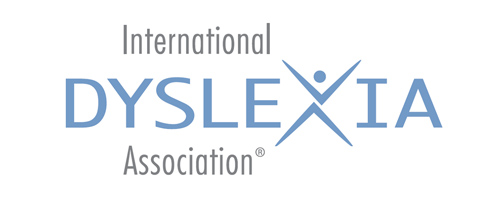What is Dyslexia?
DEFINITION
Dyslexia is a specific learning disability that is neurological in origin. It is characterized by difficulties with accurate and/or fluent word recognition and by poor spelling and decoding abilities. These difficulties typically result from a deficit in the phonological component of language that is often unexpected in relation to other cognitive abilities and the provision of effective classroom instruction. Secondary consequences may include problems in reading comprehension and reduced reading experience that can impede the growth of vocabulary and background knowledge.
- IDA, Adopted November 12, 2002
- Adopted by NJ Legislature to be added to NJDOE administrative code August 9, 2013
EARLY SIGNS
- Difficulty with rhyming, blending sounds, learning the alphabet, linking letters with sounds
- Difficulty learning rules for spelling–spell words the way they sound (e.g., lik for like); use the letter name to code a sound (lafunt for elephant)
- Difficulty remembering “little” words–the, of, said–that cannot be “sounded out”
- Listening comprehension is usually better than reading comprehension–may understand a story when read to him but struggles when reading the story independently.
WHAT IT’S NOT
Dyslexia is NOT:
- Letter reversals: Although persistent letter reversals may be part of a larger problem with sequencing letters and sounds, which may be present in older dyslexic individuals, not all dyslexics reverse letters. Also, letter reversals are common in children through second grade.
- Mirror reading/writing: Being dyslexic does not mean you’re read or write backwards, as in a mirror.
- Low intelligence: Dyslexia is found in individuals of all cognitive levels
- Something you outgrow: Dyslexia is a lifelong disorder. Individuals can learn to read and compensate for their weaknesses, but they will always have dyslexia.
- Laziness: Because individuals with average and high intelligence, who are often articulate and well-informed may be dyslexic, their reading and writing difficulties sometimes appear to be the result of laziness or lack of motivation in school. On the contrary, most dyslexic students work extremely hard to achieve limited success in reading and writing. Decoding struggles, persistent fluency issues, and possible difficulties with grammatical structure and dysgraphia can contribute to school failure and low self-esteem.
- A gift: Although many successful dyslexic adults have reported strengths in different areas, and there are many gifted dyslexics, dyslexia is a disability that presents many challenges throughout life.
INTERVENTIONS
- Explicit, systematic and sequential reading instruction that is multi-sensory and phonics-based
- Orton-Gillingham (OG)-based Programs: including OG, Wilson Language and Project Read, etc.
- Instruction in and access to assistive technology, including but not limited to: text-to-speech, speech-to-text, audio books, online graphic organizers, and apps that allow modification of fonts, backgrounds, and margins (see our assistive technology page for more information)
Share this page with your friends…


